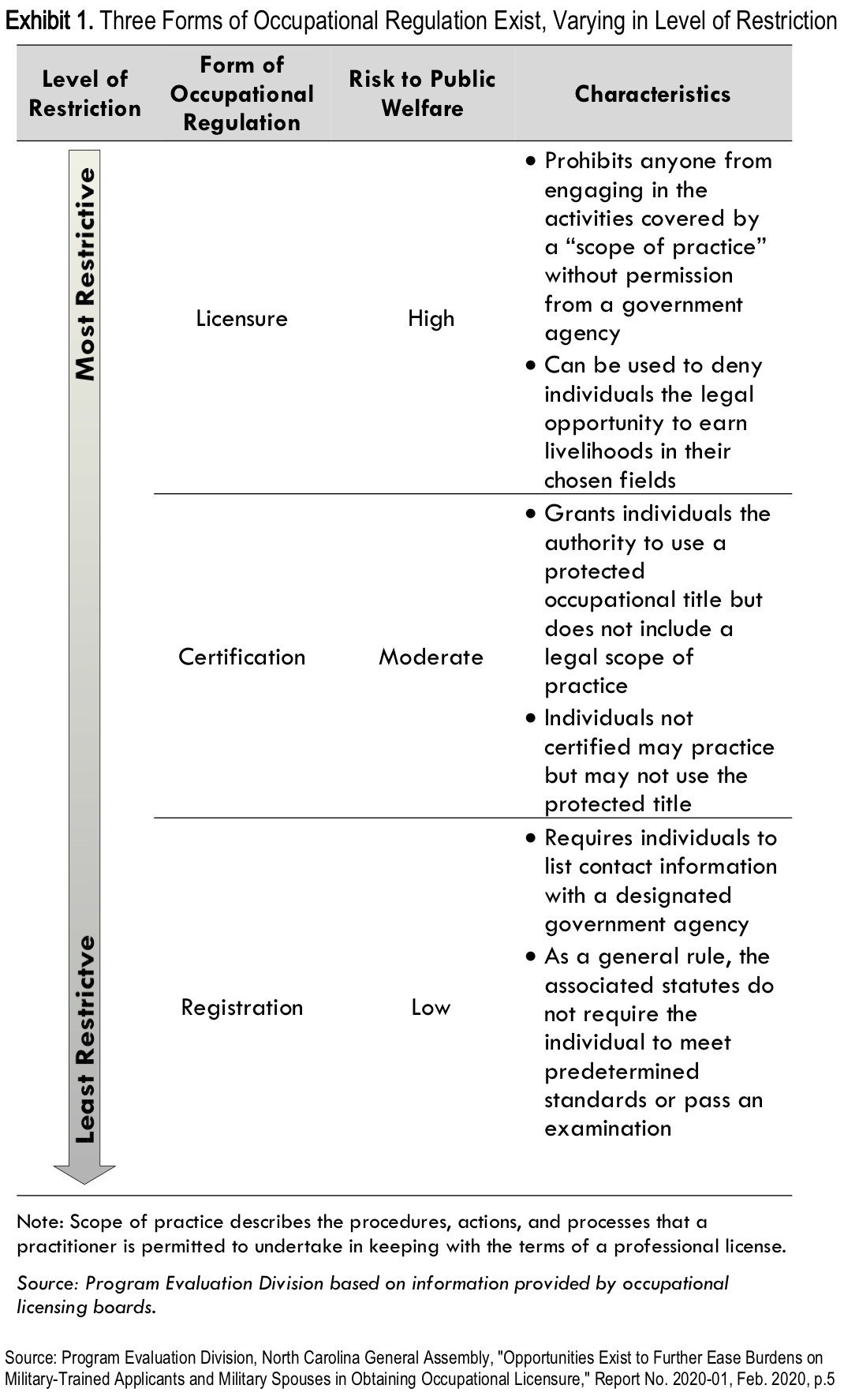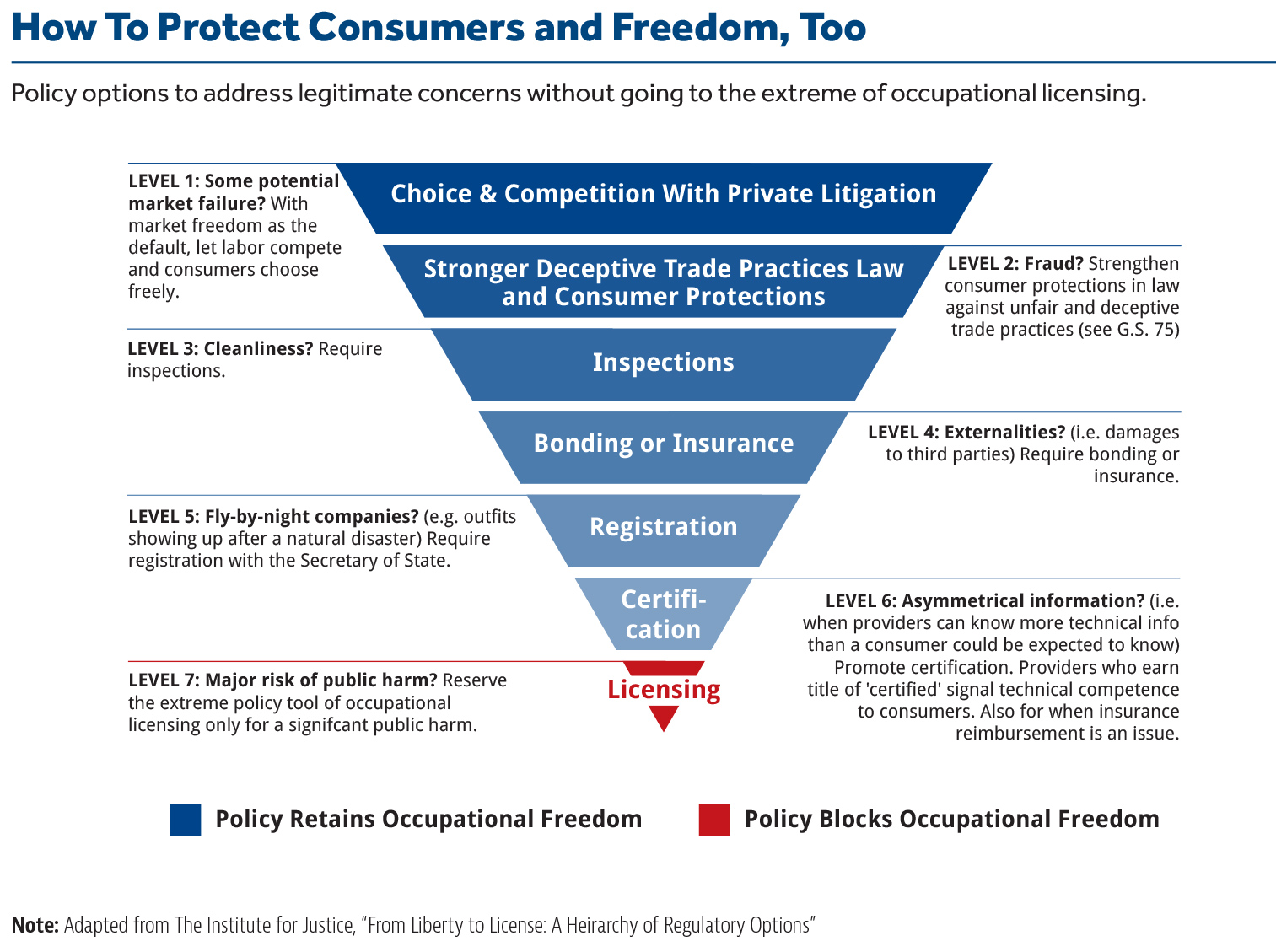Look at this exhibit from a new report from the legislature’s Program Evaluation Division (PED) about how the burdens of occupational licensing in North Carolina are harmful to military veterans and military spouses (see the Carolina Journal article on the report here):
As you can see from the report’s Exhibit 1 above, licensing is reserved for the occupations posing the highest perceived risk to public health, safety, and welfare.
And in fact, the PED report makes it crystal clear that the reason for occupational regulation is protecting public safety. It doesn’t include “help my practice obtain medical insurance reimbursement.”
If PED’s chart seems a little familiar, that’s because the John Locke Foundation has long pointed to several less restrictive policy alternatives to licensing (see the chart and discussion below).
Like PED, we recognize a graduated policy response, but only if state regulation should actually prove necessary and only as the policy of last resort. The policy alternatives are highlighted in bold below:
The state’s default policy option should be occupational freedom, trusting competitive forces, consumers, information providers, and the courts. If legitimate, serious safety concerns are identified, policymakers have several policy options other than licensing that still preserve occupational freedom. The keys are to match the regulation to the concern and then go no further.
Options include greater powers to the attorney general and the deceptive trade practices act, inspections, bonding, registration, and recognition of certification. Unlike licensing, none of those policy options would preclude North Carolinians from enjoying their self-evident right to the enjoyment of their own labor.
So yes, occupational licensing should be reserved only for the most extreme cases — practices posing the highest perceived risk to public health, safety, and welfare. That means that the grounds for debate over whether a practice should be licensed is whether the risk is correctly diagnosed and can only be managed by licensing. The tests are:
- Is it demonstrably necessary?
- Is it carefully tailored?
- Would it achieve legitimate health, safety, and welfare objectives?
For more information and for good ideas adopted in other states, see:




